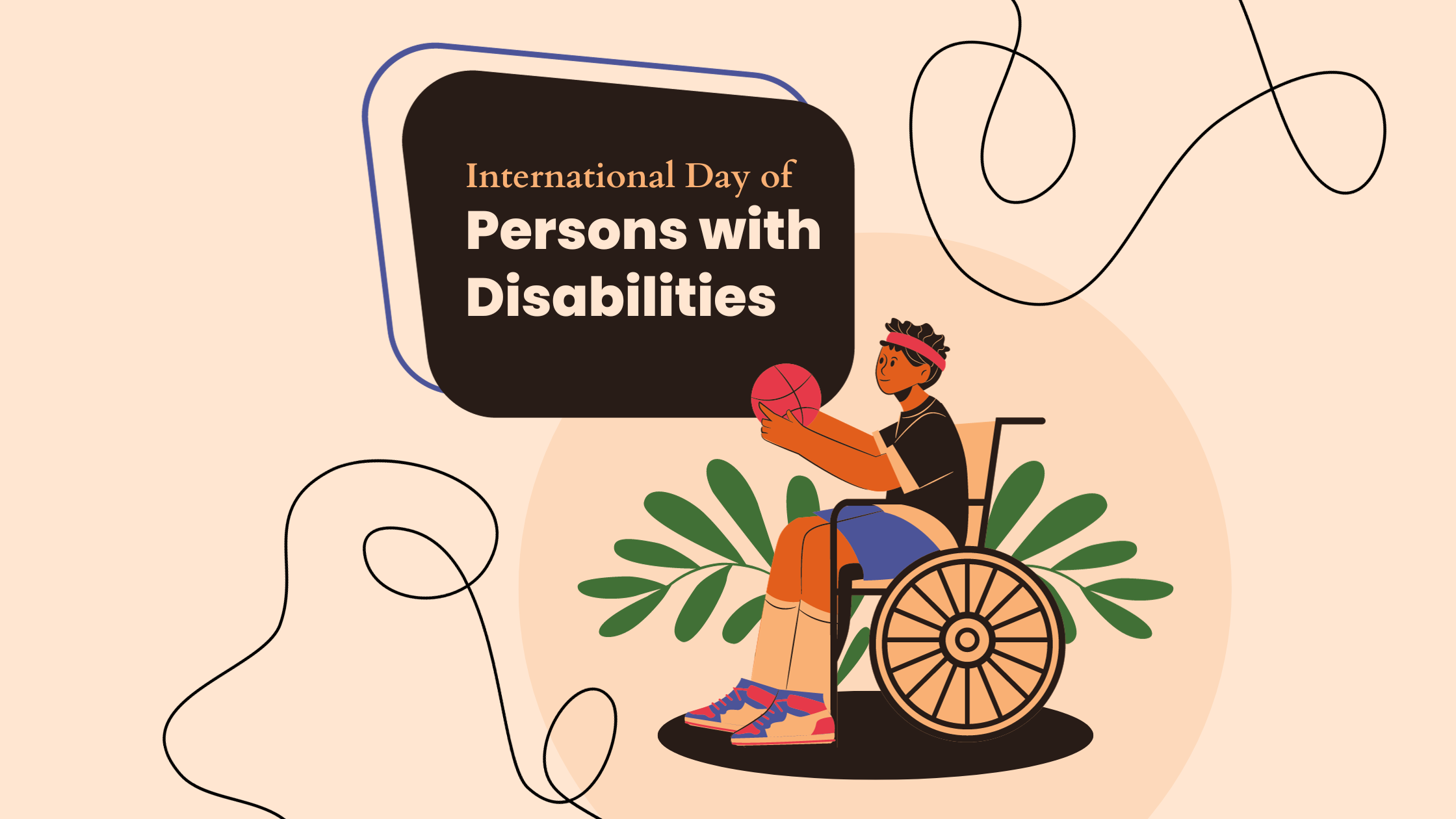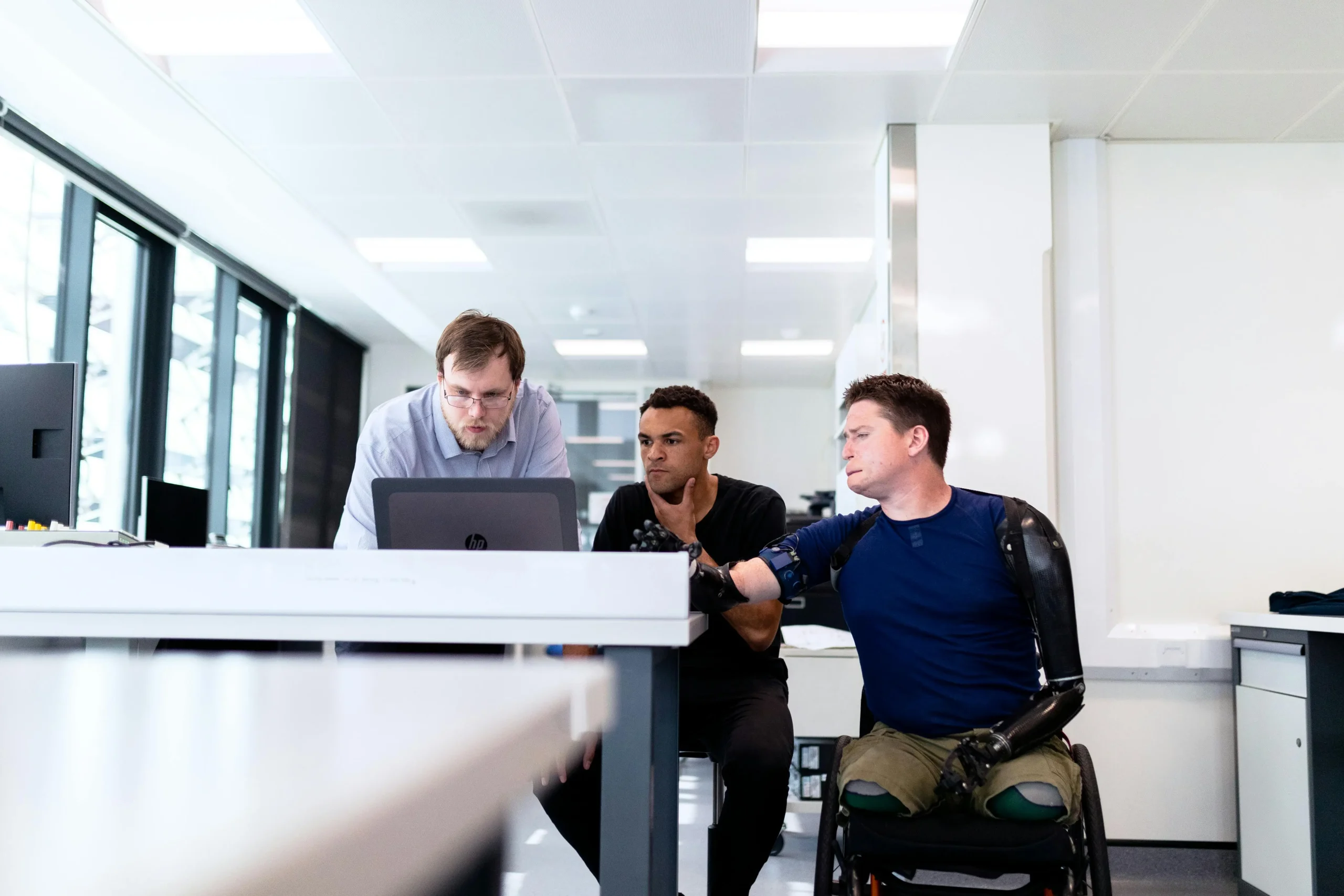Moving for Work as a Disabled Person

Equal Capable Job: Ensuring Disabled People Can Achieve Their Goals and Move Forward in Their Careers
It is no secret that many disabled people face discrimination when it comes to job opportunities. However, there are a few steps you can take to make sure that you are able to land the right job for you.
First, it’s important to identify what your disability is and how it may affect your job search. For example, if you have a physical disability, you may need to consider employers that provide accommodations for disabled people. Additionally, make sure to look for jobs that will appropriately accommodate any special requirements you may have due to your disability.
Once you’ve identified the right employers or job opportunities for you, make sure to highlight any skills or qualifications that you have which could benefit the company. Demonstrate your enthusiasm and dedication for the role and keep a positive attitude throughout the job hunting process.
Additionally, don’t be afraid to ask for additional help or support during your job search. There are organizations and groups out there that can provide advice, guidance and resources for disabled job seekers.
Finally, it’s important to remember that you are capable of achieving your goals and moving forward in your career – don’t let anyone tell you otherwise. With a little bit of research and dedication, the right job opportunity is out there for you. Good luck!
By following these steps, disabled people can find the right job opportunity for them and make a successful career out of it. It’s important to remember that you have the same rights and abilities as everyone else, regardless of your disability. With some perseverance and effort, you too can take charge of your job search and achieve success in the workplace. So don’t let anyone tell you otherwise – disabled people are just as capable of finding employment and advancing their careers.
Take a look at organizations like the Americans with Disabilities Act (ADA) to be informed on your rights in the workplace, and make sure to ask any potential employers about how they handle disabled employees before making your decision. You have the same rights as anyone else – it’s up to you to take advantage of them. Good luck!
At The end of the day, finding a job as a disabled person isn’t always easy. But with research, dedication and an understanding of your rights, you can find the right opportunity for you to make a successful career out of it. Don’t let anything hold you back – you are capable of achieving great things!
Moving for work is an exciting yet challenging endeavor, and when you’re a disabled person, there are unique considerations to take into account. While relocating can be a daunting task for anyone, those with disabilities often face additional obstacles and concerns. In this blog, we’ll explore the key aspects of moving for work as a disabled person and offer valuable insights and advice to help make the transition as smooth as possible.
- Research and Preparation
Before embarking on your move, it’s essential to do thorough research and preparation. Begin by researching the accessibility of your new workplace, public transportation options, and the overall accessibility of the new city or town. Investigate housing options with features that accommodate your specific needs, such as ramps, wider doorways, or accessible bathrooms. Reach out to local disability organizations or online communities for insights and recommendations.
- Financial Planning
Moving for work often comes with associated costs, and these expenses can be even higher for disabled individuals. Create a detailed budget that accounts for moving expenses, transportation costs, accessibility modifications for your new home, and any ongoing medical or accessibility-related expenses. Explore financial assistance options, such as grants or subsidies for people with disabilities, to help offset some of these costs.
- Housing and Accommodations
Securing suitable housing is a critical part of your relocation process. Look for housing options that are not only affordable but also meet your specific accessibility needs. Communicate with landlords or property managers to ensure they are willing to make necessary modifications or accommodations if needed. Be prepared to advocate for your needs and rights under housing and disability laws.
- Transportation
Consider your transportation options in the new location. Research the accessibility of public transportation systems, paratransit services, and accessible taxi or ride-sharing services. If you rely on a personal vehicle, ensure it is in good working condition and equipped with any necessary adaptive features.
- Healthcare and Support Services
Moving to a new area may mean finding new healthcare providers and support services. Research local healthcare facilities, specialists, and therapists who can address your specific needs. Transfer medical records and prescriptions to ensure continuity of care. Additionally, connect with local disability support groups and organizations for valuable resources and community support.
- Legal Rights and Protections
Understand your legal rights and protections as a disabled person in your new location. Familiarize yourself with local disability discrimination laws, accessible transportation requirements, and workplace accommodations. Being aware of your rights will empower you to advocate for yourself effectively.
- Social and Emotional Support
Moving to a new place can be emotionally challenging, and this is particularly true for disabled individuals who may face isolation or a lack of understanding. Seek out local disability support groups and social networks to connect with people who share similar experiences. Building a support system can be invaluable in helping you adapt to your new environment.

In the world of work, disabled people are just as capable as anyone else. They should be able to find employment that matches their skills and abilities no matter what barriers they face. Here are a few strategies to help make this dream a reality:
- Identify your strengths: Create an honest self-assessment inorder to determine what type of job you’re best suited for.
- Reach out for help: Seek advice from organizations and professionals who are experienced in the field of disability employment.
- Research your options: Make sure to look into all available employers, both big and small, as well as public sector jobs.
- Leverage technology: With the rise of virtual offices and telecommuting, more disabled individuals are able to work from the comfort of their own homes.
- Put yourself out there: Networking with potential employers is a great way to make sure you get your name and abilities out there in order to find the right job for you.
- Practice smart self-advocacy : Speak up for yourself to make sure that potential employers understand the value you bring to the table as a disabled person.
- Don’t be afraid to take risks: Taking risks can pay off in major ways. Try something new and don’t be afraid of failure, because failure is simply an opportunity to learn and grow even more.
By following these strategies, disabled people can find equal capable employment, regardless of their physical limitations. With the right mindset and actionable steps, achieving success in the workplace is possible.
This strategy will help people with disabilities to find job opportunities that match their skills and capabilities. It’s about being confident in yourself and making sure that potential employers understand your value as an employee. By networking, researching job opportunities, and being open to new ideas, disabled individuals can be just as successful in the workplace as their non-disabled counterparts. With the right attitude and effort, everyone has the opportunity to succeed.
So don’t be afraid to take those first steps towards your dream job – you won’t regret it!
You may even find that your disability becomes a strength in the workplace, giving you an edge over other candidates. Embrace your unique qualities and use them to make a difference in your career!
Finally, don’t forget to research employers that may provide accommodations or special support for their disabled employees. This can help ensure that you get the job done right and feel comfortable while doing it.With these strategies, disabled people can find equal capable employment and achieve success in the workplace. Don’t let your disability hold you back – get out there and explore what opportunities await! With persistence and determination, anything is possible. Good luck on your job search journey!
Start networking: Networking with people in similar industries or roles can help you get an idea of what jobs are available and what the working environment is like. It also helps you make connections that can potentially land you an interview or job offer.
Do your research: Research potential employers to learn more about their hiring process. Knowing what work opportunities they have and which roles fit your skillset will give you a better chance of success in the application process.
Conclusion
Moving for work as a disabled person is undoubtedly a complex process, but with careful planning, research, and determination, it can be a rewarding and successful experience. By prioritizing accessibility, financial planning, and connecting with local support networks, you can navigate this significant life change with confidence. Remember that your unique perspective and experiences can also contribute to greater awareness and inclusivity in your new community and workplace. Embrace this opportunity to make a positive impact and thrive in your new environment.













